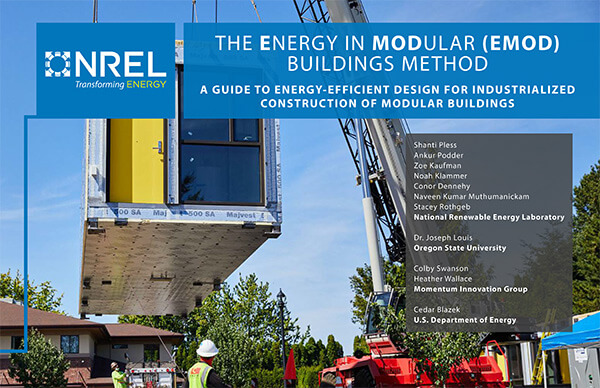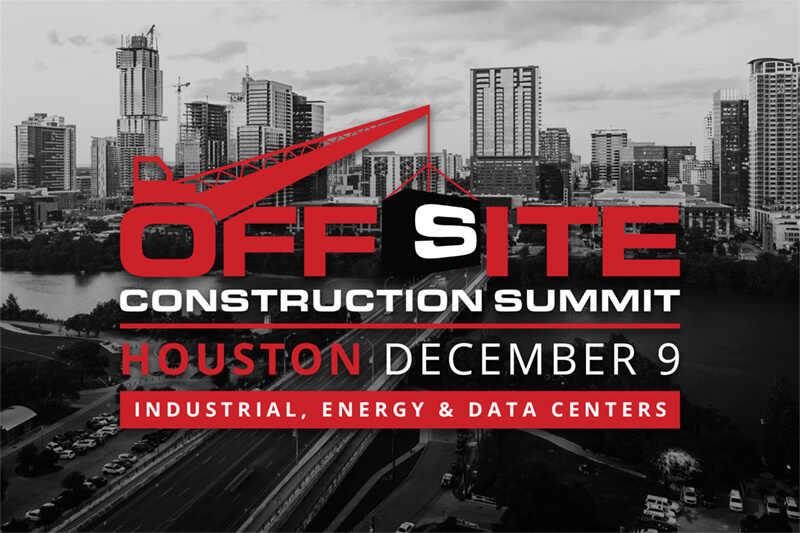The Energy in Modular (EMOD) Buildings Method (2022)
National Renewable Energy Laboratory (NREL)

The National Renewable Energy Laboratory (NREL) is making a significant effort to address the growing need for affordable and energy-efficient housing. They are using industrialized construction methods to build net-zero energy (NZE) modular buildings for underserved communities, which will play a crucial role in achieving the United States' goal of reducing greenhouse gas (GHG) emissions by 50% by 2030. The Energy in Modular (EMOD) method is NREL's approach to designing, producing, and delivering these buildings, which are not only energy-efficient but also low-carbon and healthy.
Industrialized construction has the potential to revolutionize the way buildings are constructed, making them more affordable, energy-efficient, and resilient. The process involves using high-volume off-site construction, prefabrication, and automation, which has the potential to reduce the cost of construction, delivery times, and improve the quality of the final product. Moreover, it can also help in achieving building decarbonization and electrification strategies, making it grid-friendly.
Report Summary
NREL's goal is to leverage this missed opportunity to accelerate the pathway to meeting the GHG reduction goals, ensure an equitable transition to the future of clean energy, and support the development of a high-productivity construction and energy efficiency workforce. They are drawing synergies between design for manufacturing and assembly, process optimization, retrofit technologies, and digitization to influence the improvement and production of buildings.
The EMOD method is a comprehensive approach that integrates energy efficiency strategies and decarbonization pathways into the design of a housing unit. The guide, which is intended to serve as a framework for housing developers, architects, energy experts, and process engineers, presents the background, proposed methodology, and processes involved in the EMOD method. It also discusses a select set of energy efficiency strategies and their implementation efforts with partners, providing valuable insights into how the EMOD method can be applied to each.
In conclusion, NREL's efforts to deliver affordable and energy-efficient modular buildings using industrialized construction methods have the potential to play a crucial role in achieving the United States' goal of reducing GHG emissions. The EMOD method is a comprehensive approach that integrates energy efficiency strategies and decarbonization pathways, and the guide serves as a valuable resource for stakeholders in the modular building industry. By leveraging the potential of industrialized construction, NREL aims to ensure an equitable transition to the future of clean energy and support the development of a high-productivity construction and energy efficiency workforce.
Upcoming 2026 Offsite Construction Network Events
Join the leading companies and professionals from across the offsite construction industry at each of this year's Offsite Construction Network events. With summits and expos taking place across North America in 2026, it's never been easier to connect with and learn from offsite construction manufacturers, designers, builders, and suppliers from the United States and Canada.
Subscribe today to get the latest updates on future events from the Offsite Construction Network.



